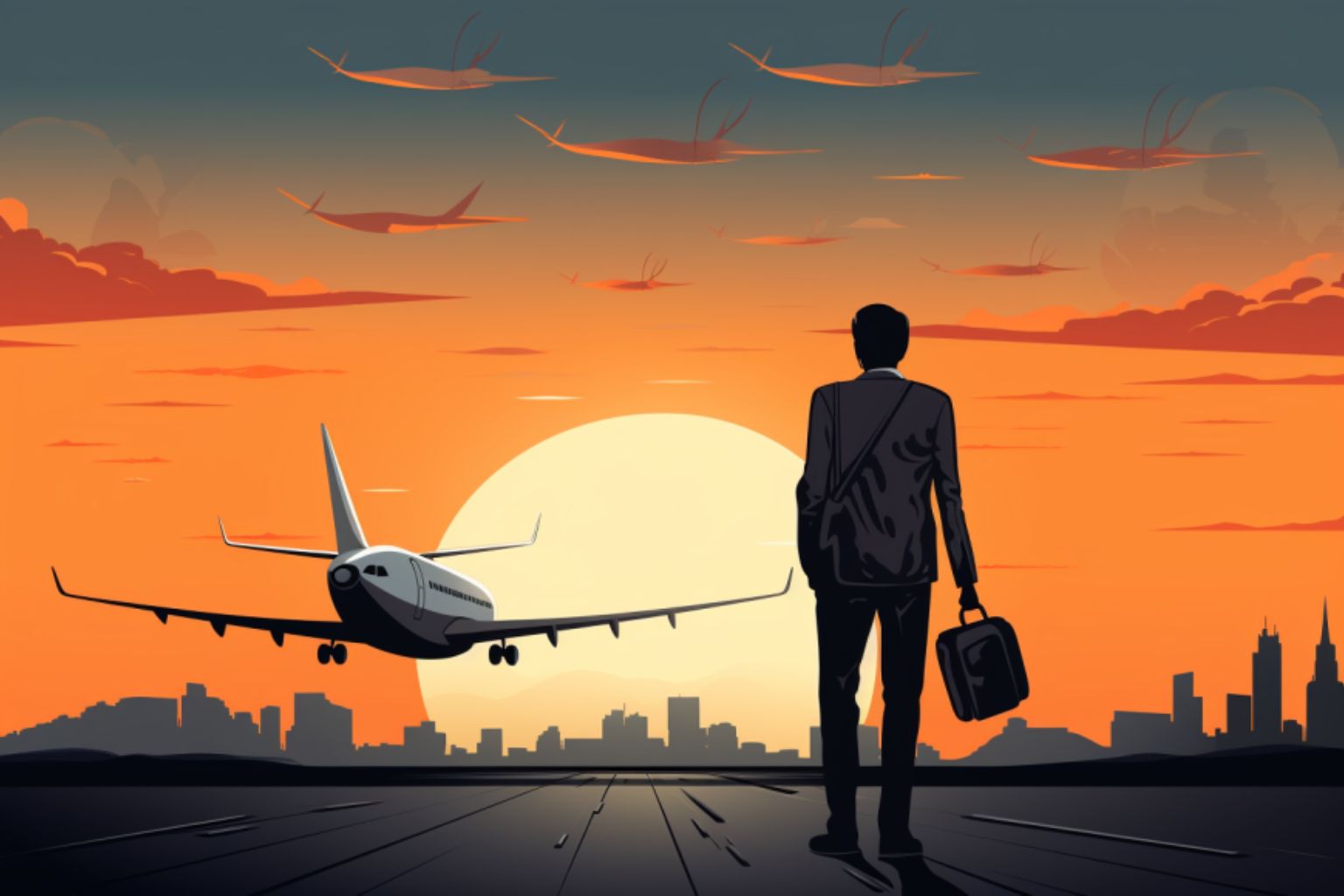Jeff Emerson missed his flight from Minneapolis to Washington last month. He didn’t make his connection to Addis Ababa, Ethiopia, and didn’t arrive as scheduled in Kilimanjaro, Tanzania, where he was supposed to start work as a summer volunteer.
The story of Emerson’s delay is fascinating — maybe a little infuriating, too — for anyone who’s flying this summer, particularly internationally. It raises an important question about who takes responsibility for delays that are beyond a passenger’s control.
Ticket troubles abroad
Emerson is a student at Luther College, a private school in Iowa. Through Orbitz, he’d booked a one-way ticket from Minneapolis to Tanzania via United Airlines and Ethiopian Airlines. The ticket was issued by Ethiopian, which means that it got the money from Orbitz and set the fare rules.
You can probably guess what happened next. A college student flying to Africa on a one-way ticket is bound to set off all kinds of alarms with the TSA. Sure enough, an agent pulled Emerson aside and questioned him, causing him to miss his flight. “Even though my passport is legitimate and my answers proved to be the truth, the agent could not remove me from a 24-hour no-fly list with the TSA,” Emerson says.
If you’re wondering about the 24-hour “no-fly” list, hold that thought.
Emerson tried to rebook his ticket for the next day, but United, the carrier on the Minneapolis-Washington leg of the trip, couldn’t help him, because it didn’t own the ticket. He needed to contact Ethiopian. And that airline wouldn’t simply let him board the next flight for Addis Ababa. It wanted him to pay another $1,640 for a new ticket. He’d paid $1,082 for his original ticket.
A student’s ticket saga
That’s when Emerson contacted me. He’d already appealed to Orbitz for help, and it agreed to waive its $30 rebooking fee. He’d also spent days bouncing among Orbitz, United and Ethiopian, and he was becoming increasingly agitated. Why, he wondered, wouldn’t Ethiopian simply rebook him on the next flight?
I contacted Ethiopian, and it said it couldn’t do that. Actually, it needed him to buy a new ticket because of Ethiopia’s visa requirements, which state that inbound passengers must have a round-trip ticket. But it was willing to waive its $400 change fee, a representative said. Ethiopian’s position makes perfect sense from an airline’s perspective. After all, rebooking him at no cost would mean forfeiting the revenue it might get from a paying passenger on the same flight.
I asked Orbitz whether it could do anything. It circled back with Ethiopian and managed to negotiate a full refund on Emerson’s ticket. He rebooked his flight, paying about $200 more than his original fare.
Almost a full week after Emerson began his journey to Africa, he arrived in Tanzania. But he found the overall experience upsetting. Shouldn’t airlines be required to help a passenger who’s left behind because of a security delay? “I understand some of their reasoning — that the delays were not directly caused by their airline — and I know airlines don’t have to do something in every single case,” he says. “But I just don’t get it.”
Passenger rights and compensation
A Department of Transportation spokesman says that technically, Ethiopian and United acted correctly. “Since the missed flight was not the carrier’s fault, DOT rules would not require the carrier to reschedule the passenger at no additional charge,” says Bill Mosley, a department spokesman.
The TSA doesn’t require airlines to help passengers who are held up. “Re-accommodation is between the airline and the passenger,” a spokesman told me. The TSA doesn’t compensate passengers who are delayed for security reasons, either. But for years, airlines have helped travelers by letting them take the next available flight. It appears that those informal agreements extend only to domestic airlines.
“I was an innocent victim of the TSA’s security measures,” Emerson says. “I also feel that I am entitled to some compensation for my loss of time, and the condescension I’ve had to deal with, largely on the part of Ethiopian Airlines.”
A call for greater airlines accountability
What about that 24-hour “no fly” list? A spokesman for the Terrorist Screening Center, a branch of the FBI that maintains the watch list of passengers who aren’t allowed to fly, told me that there is “no such thing” as a 24-hour “no fly” list. “If you’re on the list, you can’t fly — period,” he said. (Here’s what to do when your flight gets delayed or canceled.)
But Emerson’s long journey to Africa raises a broader issue: For years, airlines have invoked “reasons beyond our control” as an excuse to deny passengers essentials such as a hotel room when a flight is held up because of weather, or a meal when air traffic control keeps a plane on the ground over lunch. Passengers are disappointed but generally understanding. (Related: Oh no! I missed my connection and had to pay extra.)
When the tables are turned, however, and passengers miss a flight for reasons beyond their control, airlines are reluctant or unwilling to be accommodating. It’s difficult to regulate an entire industry into seeing things from the customer’s perspective. But should that stop us from trying?




